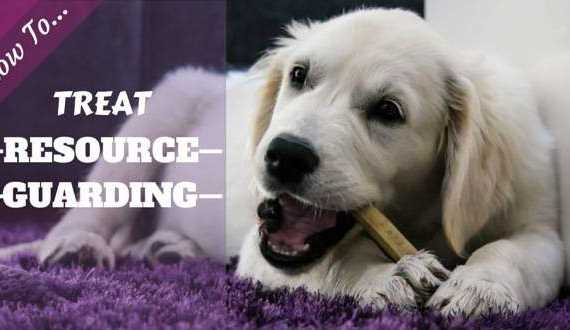This article contains affiliate links. Read the full disclosure here.

Interestingly, Golden retrievers and cats can get along with each other very well depending on a couple of factors.
Of course, if your Golden is elderly and a bit of a grouch, is in pain or sick, has had a bad history with cats, or has an unpredictable temperament, they may not have had the best relationship between your cat and your dog.
However, if your Golden has been properly socialized, is open to new experiences, and is adaptable, enjoys the company of others, and is fairly predictable will enable your two pets to get along very well.
Read on to learn more about what makes your Golden ideal to live with a cat and the first couple of steps you should take when introducing your cat and dog to one another.
Do Cats And Dogs Hate Each Other? Myth Or Fact?
One of the oldest tropes in cartoons and TV shows is a dog chasing a cat. So, one may think that cats and dogs are natural enemies. However, this is false. Dogs and cats do not harbor a natural hatred for one another.
In fact, the two species can get along very well!
The myth springs from the fact that dogs have a prey drive to chase things that are smaller than them and that run away. Cats happen to fit this description rather well.
The prey drive comes from when our domestic dogs were wild and had to hunt to survive. Even though they have been domesticated for a very long time, all dogs, even little ones like Chihuahuas, have a lingering prey drive.
Cats, on the other hand, are very independent and would rather avoid conflict than engage with something bigger than them. Therefore, cats will run away from dogs in a strange environment.
It is a myth that dogs hate cats and vice versa; they merely have behavioral and temperamental differences that can cause them to react negatively in stressful or unfamiliar situations or if the other species is completely new to them.
This is all excellent news for you because it means that your Golden retriever is not secretly planning your cat’s demise! But can Goldens and cats get along and even live alongside each other peacefully?
Are Golden Retrievers Suited To Living With A Cat?

As a breed, Golden retrievers are very nurturing, gentle, and intelligent. This means they are predisposed to being good with animals that are smaller than them such as cats.
If you have a Golden retriever that is purebred, you have a pretty good idea of their temperament and what behavior they will display to a cat in their home. However, breeding is not everything, and every dog has their own personality.
There are a number of factors that will affect whether your Golden retriever can get along with a cat. These factors are how old your dog is, how healthy they are, whether they have been exposed to cats before and what that interaction was like, how well they have been socialized, and what their overall temperament is.
1. Age Of Your Golden Retriever
Younger dogs are far more open to new experiences and are more likely to accept a cat into their environment as a new exciting adventure. Younger dogs are also far more trainable and are able to be trained to interact with a cat acceptably.
Training your Golden will include bite inhibition and chasing inhibition training. These are difficult habits to break once they are formed and can turn an interaction between a Golden and a cat disastrous.
As dogs age, some become far more grouchy when it comes to learning new things. They may be very reluctant to learn how to interact with a new cat. If you are introducing a kitten to an adult medium breed dog who has no time for playing around, then chances are they are not going to have a good relationship.
The same goes for cats. Older cats may want nothing to do with a dog if you are introducing one into their environment.
2. Overall Health Of Your Golden Retriever
If your Golden has health problems that make it prone to snapping or growling when in pain, then they may not be suited to a household with a cat, especially a kitten or an adult rescue cat.
You may have the most darling Golden retriever that unfortunately has hip dysplasia or severe arthritis that will occasionally growl or snap at a hand that puts too much pressure on their sore joints. Humans understand the reaction and learn from it.
Kittens, however, may not understand the reaction or become injured in the process.
Consider your Golden’s health before bringing a cat home, and of course, consider your cat’s health before bringing a Golden home. Goldens are playful, and a sore or sick cat will not put up with a rambunctious Golden puppy if it unintentionally hurts it.
3. Your Golden’s History With Cats
If your Golden retriever has a good history with cats, for instance if they have been raised with them or interacted positively with them in the past, then adding a cat to their pack structure is a no brainer! Goldens are very intelligent and will remember the interaction.
The issue will come in if they have had a severe negative interaction with a cat in the past. This could be the neighborhood tomcat coming over the wall and terrorizing your Golden when they were a puppy, or it could be a reversed situation where your dog reacted negatively to a cat, chased, and bit it.
It is important to make a mental note of any interactions they have had in the past, as it will inform your dog’s (or cat’s) future behavior.
4. Your Golden’s History Of Socialization
Socialization is one of the most important positive things you should do for your dog or cat. When your pet is appropriately socialized, they are then far more adaptable and open to new experiences because they associate new experiences with excitement and fun.
Socializing your Golden is simple because they are fun-loving dogs. Taking them on walks, hikes, to friends and family homes, on vacation, and to dog parks are all ways you can continuously socialize your Golden with the world around them.
The better socialized your Golden is, the more ready they are to accept new adventures like a cat in their home!
The same goes for your cat if you are introducing a Golden retriever to their home. Cats are far more independent, and it’s not a great idea to take them to other people’s homes. However, you can put them in a harness and take them for walks around the neighborhood, to the beach, or on a hike!
5. What Is Your Golden’s Temperament Like?
Golden retrievers are renowned for having a gentle temperament. However, all dogs are unique, and you may have a Golden that embodies the grouchy old man in the run down house at the end of the street that scares children on Halloween and Easter!
Socialization and careful training can help improve a dog’s temperament! However, it is not 100% guaranteed.
The same goes for your cat if you are introducing a dog to their home. A grumpy cat that does not like to share will most likely not treat a new dog in their environment well.
If you are unsure of your Golden’s (or cat’s) temperament when it comes to the other species, take the introduction process very slow and closely monitor all interaction for the first couple of weeks.
How Should You Bring A Cat Home To A Golden Retriever?

Slow and steady wins this race!
The introduction process should be very slow, consistent, and always supervised. When you bring your new cat home to your dog’s environment, ensure you have the opportunity to be at home with them for at least a week or longer if they are taking a while to get used to your dog..
When you bring your cat home, they should be kept in a closed, single room to acclimatize to their new surroundings. During this time, keep your dog out of the room so as to not overwhelm your new cat whether they are an adult, rescue, or a kitten.
Step 1: Smell-O-Vision
Rub a new toy on your cat and let them play with it for a bit. This will allow their smell to transfer to the toy. Then let your Golden cuddle with the new toy. This will help introduce your cat’s smell to your dog.
After four or five days, take your Golden’s blanket or toy that has its scent on it and give it to the cat and leave it in their room. This will allow your cat to get used to your dog’s smell without being overwhelmed.
During this week, your Golden will most likely smell the new cat through the door and associate it with the toy they have that smells the same and be excited to meet them.
Step 2: Stimulation And Exercise
When your cat has acclimatized to the room and the week is up, it’s time for the initial interaction. Exercising your Golden shortly before this meeting is important!
For 15 minutes to half an hour, play with your Golden, run around with them, take them for a walk, and help them work out some of their built-up energy.
After play time, set them up in a communal area like the living room where they can be closely supervised. This way, if your cat runs away, it will be back into the room and not the street.
Surround your Golden with some of their favorite toys and treats. Using a treat-filled Kong or similar puzzle toy will help stimulate your Golden mentally and allow them to focus on something else while your cat is in the room.
Step 3: The Introduction
Take your dog’s blanket that you have left in the cat’s room and place it on the floor where you plan to do the meeting.
Pick up your cat from the room and leave the door open. If the interaction is too much for your cat, they should be able to get back to the room that makes them feel safe.
Take your cat to the room where your dog is and sit on the floor with them. Do not force them to touch or interact. Allow them to come closer to each other naturally.
Your Golden will most likely come over to you and try sniffing the cat. Do not hold your cat captive; allow them to move around. You can place your cat on the blanket that now smells like both of them.
This mingling of scents should calm them both.
It is important that you remain calm and not make a big deal of the interaction. If you are calm, then your Golden will be more inclined to remain calm.
If you are worried about your Golden chasing your cat, then you can put them in a harness and keep them on their leash.
It is important that they are able to interact as regularly as possible. Once you feel they are happy on the floor together, you can start moving around the house, but always keep an eye on them.
Note that if you’re bringing home a Golden retriever to your cat, the socialization process is essentially the same.
FAQs About Golden Retrievers And Cats
Are there specific breeds of cats that are better suited to living with dogs?
Certain breeds of cats are better suited to living with dogs because of their breed temperament. Cats like Maine Coons, Norwegian forest cats, American bobtail cats, and American shorthair cats are all known for being fairly laid-back, sociable cats that get along well with dogs..
Will my Golden retriever eat my cat?
Goldens may chase cats or bite them if they feel that they are being threatened, but they will not outright eat your cat.
What are the warning signs to look out for?
It is important that you look out for warning signs from your dog that it is not happy with the cat.
Raised hackles, soft growling, wide open eyes, exposing the front teeth, and standing over your cat are all warning signs that you should now remove the animals from the situation.
Learn to read your dog’s behavior, as it will tell you a lot about them! Learning to read their behavior will help you communicate with them better.
Wagging Away On Golden Retrievers And Cats
Your Golden retriever and cat can get along famously! However, they need to be introduced slowly and always have supervision. Keep these three things in mind when introducing them to one another:
- Take things slow
- Let them get used to each other’s smell first
- Remove them from the situation if either one shows severe aggression
Golden retrievers and cats with certain temperaments will get along better than others. If you have a Golden that is older, in pain, or has a poor history with cats then it is most likely your cat and Golden will not get along well.
However, with proper socialization and good recall training, your Golden retriever and cat will live a happy life together!



